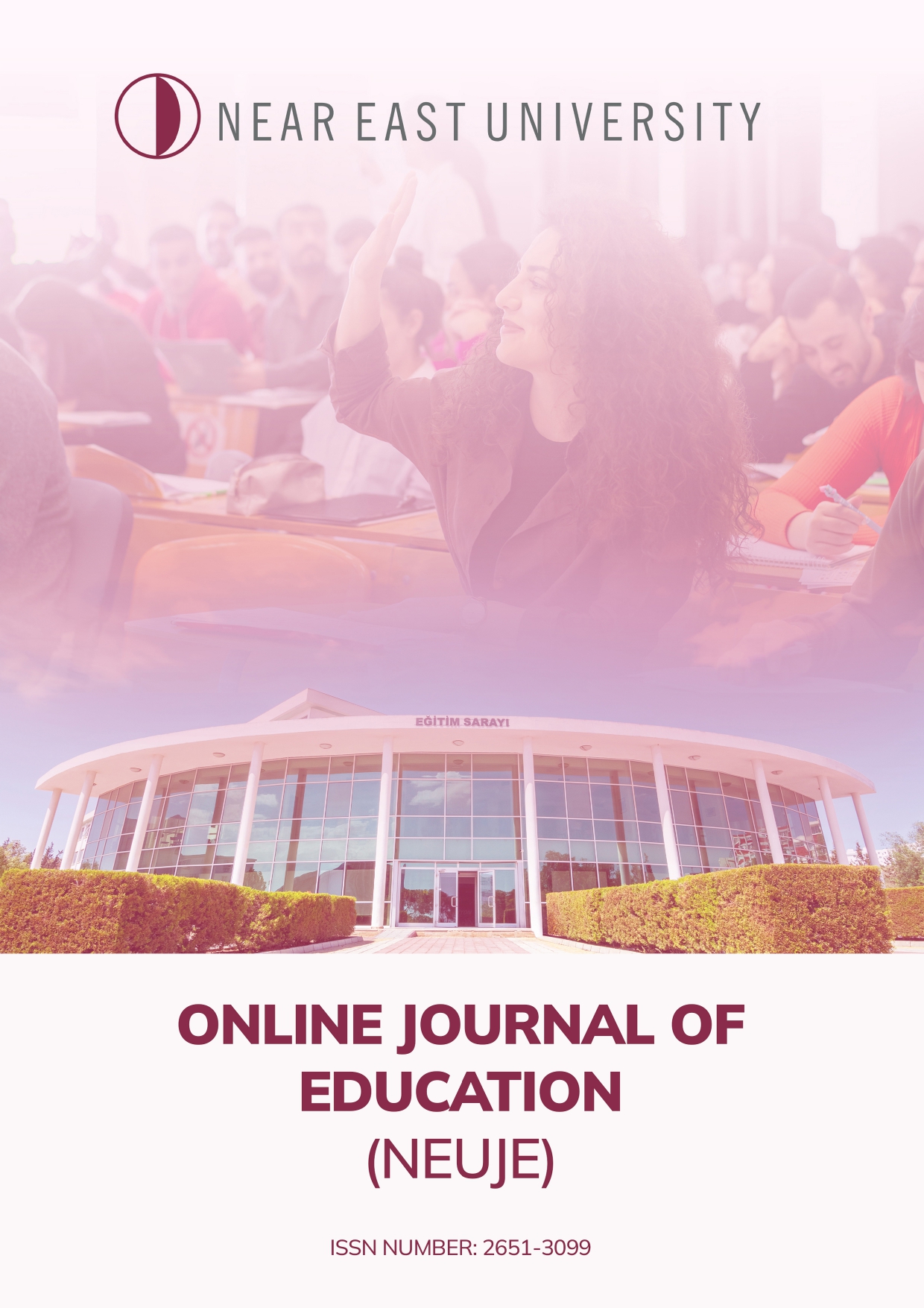EXAMINATION OF TEACHERS’ OPINIONS ABOUT HOMESCHOOLING SERVICE
DOI:
https://doi.org/10.32955/neuje.v3i1.186Keywords:
homeschooling, focus group discussion, persistent diseaseeteAbstract
The goal of this research is to determine teachers’ opinions about the homeschooling service. Teachers participated in the research are the ones provided the homeschooling services in Sakarya City Centre within 2018-2019 school year. Qualitative research method has been used for the research and data has been collected via focus group discussion. Descriptive analysis technique has been used for analysing the obtained data. When the findings of the research are examined, participants who have been providing homeschooling services in a range of one to three years, stated that they had no prior information about homeschooling services, and they enhanced their knowledge level within the process of the education. Every single one of the participants specified that they all practiced observation and evaluation to determine educational performance and the needings of the students during the early weeks of homeschooling service, and afterwards they created individualized education plan (IEP) and figured the educational process according to this plan for their students. The lack of awareness about homeschooling, the families’ behaviours and experiencing insufficiency about the supplies are expressed as encountered problems within the homeschooling process. It is emphasized that the homeschooling service increases academic skills of the students while students’ distance from their peers and the social environment is a disadvantage.
Keywords: homeschooling, focus group discussion, persistent diseaseete
References
Basham, P., Merrified, J., ve Hepburn, Claudia R. (2007). Home schooling: From the extreme to mainstream. Study in Education Policy. Occasional Paper. Vancouver: The Fraser Institute.
Brabant, C., Bourdon, S., & Jutras, F. (2003). Home education in Quebec: Family first. Evaluation & Research in Education, 17(2-3), 112-131.
Birkan, B. (2002). Erken özel eğitim hizmetleri. Ankara Üniversitesi Eğitim Bilimleri Fakültesi Özel Eğitim Dergisi. (3) 2, 99-109.
Collom, E. (2005). The ins and outs of homeschooling: The determinants of parental motivations and student achievement. Education and Urban Society, 37(3), 307-335.
Evde ve Hastanede Eğitim Hizmetleri Yönergesi (2010). Tebliğler Dergisi, Şubat 2629. 01.04.2019 tarihinde
https://orgm.meb.gov.tr/meb_iys_dosyalar/2012_10/02031840_evde_hastanede_egitim_hiz_yonergesi.pdf sitesinden erişilmiştir.
English, R. M. (2013). The most private private education: Home education in Australia. Homeschool Researcher, 29(4), 1-7.
ERG. (2014). Türkiye eğitim sisteminde eşitlik ve akademik başarı araştırma raporu ve
analiz. İstanbul: Eğitim Reformu Girişimi.
Ertürk, S. (1997). Eğitimde program geliştirme. Ankara: Meteksan
Fields-Smith, C., & Williams, M. (2009). Motivations, sacrifices, and challenges: Black parents’ decisions to home school. The Urban Review, 41(4), 369-389.
Gözün, Ö. ve Yıkmış, A.(2004). İlköğretim müfettişlerinin kaynaştırma uygulamasına ilişkin görüş ve önerileri. Ankara Üniversitesi Eğitim Bilimleri Fakültesi Özel Eğitim Dergisi, 5 (2), 79-88.
Korkmaz, H., & Duman, G. (2014). Public understanding about homeschooling: A preliminary study. Procedia-Social and Behavioral Sciences, 116, 3891-3897.
Knuth, J. D., & Johnson, S. A. (2010). A descriptive analysis of homeschooling children with autism (Doctoral dissertation).
Lubienski, C. (2003). A critical view of home education. Evaluation & Research in Education, 17(2-3), 167-178.
Özel Eğitim Hizmetleri Yönetmeliği. (2018). TC, Resmi Gazete, 30471, 07.07.2018. 20.03.2019 tarihinde
https://orgm.meb.gov.tr/meb_iys_dosyalar/2018_07/09101900_ozel_egitim_hizmetleri_yonetmeligi_07072018.pdf sitesinden erişilmiştir.
Petrie, A. (1995). Home education in Europe and the implementation of changes to the law. International Review of Education, 47(5), 477-500.
Princiotta, D., Bielick, S. & Chapman, C (2006). Homeschooling in the United States: 2003, (NCES 2006- 042) Washington, DC: U.S. Department of Education. National Center for Education Statistics.
Ray, B.D. (2000). “Home schooling: The ameliorator of negative influences on learning?” Peabody Journal of Education, 75 (1/2), 71-106.
Taşdemir, M. ve Bulut, A. S. (2015). Ev okulu uygulaması üzerine bir durum çalışması: kuram ve özel eğitimde uygulama. International Journal Of Eurasia Social Sciences, 6 (19), 138-157.
Terry, B. K. (2011). Homeschooling in America a viable option. Online Submission.
Winstanley, C. (2009). Too cool for school? Gifted children and homeschooling. Theory and Research in Education, 7(3), 347‐362.
Yıldırım, A., & Şimşek, H. (2008). Nitel araştırma yöntemleri. (7. Baskı). Ankara: Seçkin Yayıncılık, (s 113).
Yıldırım, N. (2011). Öğretim sürecinde bulunan öğrencilerde görülen süreğen hastalıklar üzerine yönetimsel değerlendirme: tokat ili örneği. Balikesir University Journal of Social Sciences Institute, 14(25), 69-85.
Yıldırım, N., Talas, S., Yazıcı, L., Nural, H., Çelebi, İ., Çetin, K., ... & Çaylak, M. (2015). Evde eğitim alan öğrencilerin eğitim süreçlerinin değerlendirilmesi (Tokat İli Örneği). Eğitim Kuram ve Uygulama Araştırmaları Dergisi, 1(1), 33-52.
Downloads
Published
How to Cite
Issue
Section
License
Authors who publish with this journal agree to the following terms:





